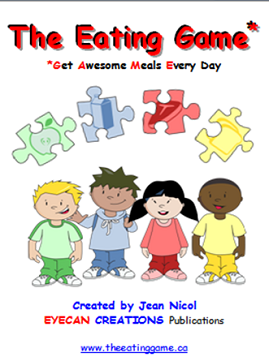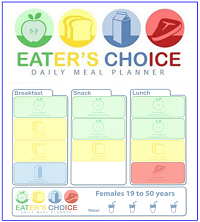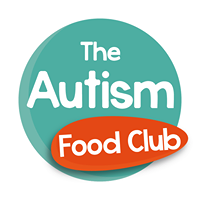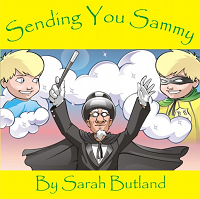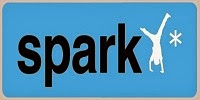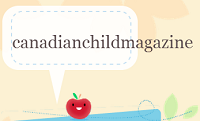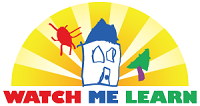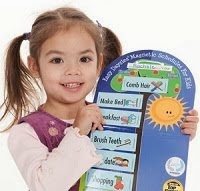Do visitors and the disruption of regular routines present problems for your child?
Try this..................
1)Write a social story about a specific event that you think may be difficult for your child; prepare them ahead of time; create a more predictable environment.
•Be sure to write it in language your child understands.
•If you take great care with use of language when speaking to your child, then write it down the way you might say it.
•Be brief in describing what and/or when, where, why and how of the event.
•Write about who will be there and how everyone will be feeling and how your child will be a part of what is happening
•Describe your expectations.
•Be very positive and don’t make it a list of do’s and don’ts.
•Use lots of visuals: photos, drawings, graphics
•Be creative.
~ This can be one or two pages (age appropriate amounts of text)
~ Make a storybook with a sentence and illustration on each page.
~ Use drawings, graphics, Google images, photos, magazine cut outs)
~ Put it on the computer, maybe a power point presentation.
~ Make a video presentation, even just video tape yourself reading it.
~ Make it a song.
~ Create a comic strip
2)Read this story to your child several times a day up until the event. Have others read the story too. This way you are sure that you and other family members/caregivers are all on the same page with expectations and the message is always the same.
Do you have any tips for parents or educators from your experience with social stories? Or perhaps you have some questions to ask others.........please do comment.
Tuesday, November 30, 2010
Holidays & Autism ~ Challenges Made Easier!
Do you and your child already find mealtimes a challenge?
Are they a picky eater who has even more difficulty with the extra hustle and bustle, special guests, different timing or location of family meals during the holiday season?
Try this.................
Create a visual display about the meal, using text if appropriate to label foods or describe what will be happening. You will be taking away a good deal of the surprise and your child will like that they know ahead of time what they will be eating. Review this often ahead of time and display at the time of the meal.
1)Present pictures of all the foods that will be served-use photos, graphics, Google images, magazine cut outs.
2)Have your child choose the foods they will eat and stick them on a drawing of a plate or a real plate!
3)Divide the plate in 4 and have them choose 4 different foods to go on their plate. You decide ahead of time on the number and selection of foods.
4)Plan for a drink choice and a dessert choice too.
5)Think of other ways your child might be involved in helping with the meal if appropriate:
•Can they help you shop for the foods (take some pictures with you)
•Maybe they can help with some of the meal preparation
•If you had an illustration would they be able to set the table or assist with this task
•Could they put name cards (perhaps photos) on the table, so they know where people will be sitting
•Is it possible for them to help serve the meal
•With everyone finished the meal and out of the kitchen would they enjoy helping to clean up, listening to some favourite music perhaps
Can you add any other ideas to these lists? Sharing a tip that works for you may be just the solution another parent is looking for.
Are they a picky eater who has even more difficulty with the extra hustle and bustle, special guests, different timing or location of family meals during the holiday season?
Try this.................
Create a visual display about the meal, using text if appropriate to label foods or describe what will be happening. You will be taking away a good deal of the surprise and your child will like that they know ahead of time what they will be eating. Review this often ahead of time and display at the time of the meal.
1)Present pictures of all the foods that will be served-use photos, graphics, Google images, magazine cut outs.
2)Have your child choose the foods they will eat and stick them on a drawing of a plate or a real plate!
3)Divide the plate in 4 and have them choose 4 different foods to go on their plate. You decide ahead of time on the number and selection of foods.
4)Plan for a drink choice and a dessert choice too.
5)Think of other ways your child might be involved in helping with the meal if appropriate:
•Can they help you shop for the foods (take some pictures with you)
•Maybe they can help with some of the meal preparation
•If you had an illustration would they be able to set the table or assist with this task
•Could they put name cards (perhaps photos) on the table, so they know where people will be sitting
•Is it possible for them to help serve the meal
•With everyone finished the meal and out of the kitchen would they enjoy helping to clean up, listening to some favourite music perhaps
Can you add any other ideas to these lists? Sharing a tip that works for you may be just the solution another parent is looking for.
Labels:
autism,
eating,
mealtime challenges,
special mealtimes
Monday, November 29, 2010
SOCIAL STORIES ARE POWERFUL
Are you wondering how to deal with all the activities of the upcoming busy season?
Are you concerned about how your child will deal with company arriving for a visit and you'd like to prevent possible meltdowns?
Write a social story (ies) about visitors who will be coming and put photos of your friends/family in the story, especially any you might have of your two families together. That way they won't be strangers to him and he will know what to expect. Write little stories about things you will be doing together, especially if different from your normal routines. Read these stories several times a day up until they arrive and while they are there if you need to.
If you haven't used social stories, know that they are a very powerful teaching tool for kids on the spectrum, actually for any kids! They are written in language your child understands, very personal, can include photos and/or graphics, describe a situation well (make it predictable), is not a list or rules or “to dos”, is very positive, can be read repeatedly to reinforce what you are trying to teach and every time it is read the message is EXACTLY the same. The latter is very hard to accomplish when it is not written down. Also when it is written down everyone who reads it is imparting EXACTLY the same message ~ how else can you get such consistency?(the story helps more than just the child!)
Mom, dad, siblings, babysitter, therapist, grandparents, school staff can all be on the same page, imparting the same message ~ it is powerful! I know children, teens and young adults who read and reread their own as needed! Oh and they can all help you write them if capable and appropriate. Some of them may even help take the pictures. There are also many creative ways to present the stories (for another posting)
Keep the stories in a binder in page protectors so they don’t get worn out, because they will be well used. Make more than one copy and send one to school and ask them to read them. They may start writing some for school that you can read at home, you are supporting school efforts and you are well informed of school expectations too! I have written hundreds for many children, teens and young adults and was never disappointed with the results!
Do you use social stories? How old is your child? Would you share one tip that might help other parents or educators who are just starting to use social stories?
Are you concerned about how your child will deal with company arriving for a visit and you'd like to prevent possible meltdowns?
Write a social story (ies) about visitors who will be coming and put photos of your friends/family in the story, especially any you might have of your two families together. That way they won't be strangers to him and he will know what to expect. Write little stories about things you will be doing together, especially if different from your normal routines. Read these stories several times a day up until they arrive and while they are there if you need to.
If you haven't used social stories, know that they are a very powerful teaching tool for kids on the spectrum, actually for any kids! They are written in language your child understands, very personal, can include photos and/or graphics, describe a situation well (make it predictable), is not a list or rules or “to dos”, is very positive, can be read repeatedly to reinforce what you are trying to teach and every time it is read the message is EXACTLY the same. The latter is very hard to accomplish when it is not written down. Also when it is written down everyone who reads it is imparting EXACTLY the same message ~ how else can you get such consistency?(the story helps more than just the child!)
Mom, dad, siblings, babysitter, therapist, grandparents, school staff can all be on the same page, imparting the same message ~ it is powerful! I know children, teens and young adults who read and reread their own as needed! Oh and they can all help you write them if capable and appropriate. Some of them may even help take the pictures. There are also many creative ways to present the stories (for another posting)
Keep the stories in a binder in page protectors so they don’t get worn out, because they will be well used. Make more than one copy and send one to school and ask them to read them. They may start writing some for school that you can read at home, you are supporting school efforts and you are well informed of school expectations too! I have written hundreds for many children, teens and young adults and was never disappointed with the results!
Do you use social stories? How old is your child? Would you share one tip that might help other parents or educators who are just starting to use social stories?
Subscribe to:
Posts (Atom)
